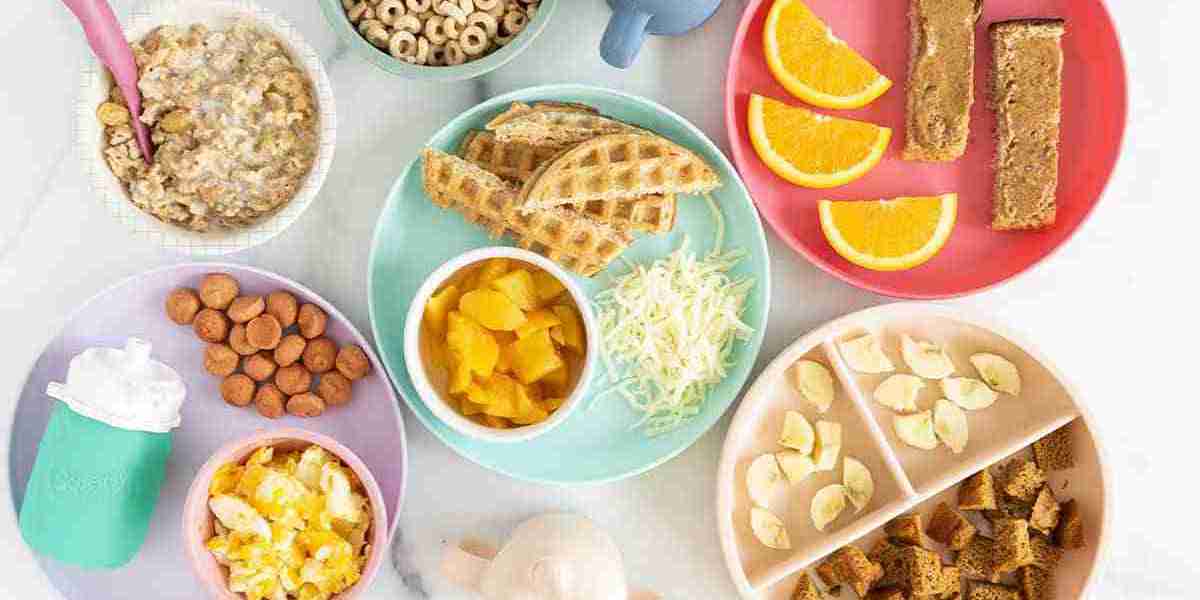Breakfast is widely recognised as the most important meal of the day, especially for babies. After a night’s sleep, little bodies need fuel to kickstart energy, support rapid growth, and stimulate brain development.
Nutrient-rich morning meals lay a strong foundation for lifelong healthy eating habits while ensuring babies get essential nutrients. With simple planning and creativity, busy parents can prepare wholesome breakfasts that babies enjoy.
Why Breakfast Matters for Babies
Babies grow at a phenomenal rate during the first year, developing muscles, bones, organs, and cognitive abilities at a pace unmatched later in life. A nutritious breakfast supports:
Energy levels: Provides fuel for morning play and exploration.
Concentration: Supports brain activity and focus as babies interact with their environment.
Growth: Supplies protein, healthy fats, and essential micronutrients for development.
Skipping breakfast or offering high-sugar options may lead to energy dips, irritability, and missed opportunities for nutrient intake. Establishing a routine of healthy breakfasts can also help babies develop positive food habits, reduce fussiness, and encourage variety in their diet.
Key Nutrients for Morning Meals
For a well-rounded breakfast, it’s important to focus on four main nutrient groups:
Protein: Eggs, yoghurt, lentils, finely minced chicken support muscle growth and brain development.
Wholegrains: Oats, wholemeal toast, mini pancakes provide fibre and sustained energy.
Fruits and Vegetables: Soft fruits like banana, berries, or pear supply vitamins, antioxidants, and minerals.
Healthy Fats: Avocado, olive oil, full-fat dairy essential for brain and nerve development.
A combination of these nutrients ensures babies get energy, immunity support, and elements vital for cognitive development.
Practical Breakfast Ideas for Babies
Parents often need quick and easy options. For those starting solids, these top 10 favourite brekkie ideas for 7 months provide nutritious, age-appropriate recipes:
Soft Fruit Purées with Oats:
Mashed banana or pear mixed into cooked oats for a fibre and vitamin boost.
Vegetable Porridge:
Sweet potato or carrot blended into porridge provides beta-carotene and minerals.
Egg Yolk Mash:
A simple cooked egg yolk mashed with a little milk offers protein and choline.
These recipes are easy to prepare, packed with nutrients, and adaptable for busy mornings.
Making Breakfasts Appealing
Presentation matters, even for the youngest eaters. Babies are naturally curious, and offering visually stimulating meals encourages interest:
Shapes and Colours: Cut fruit or soft veggies into simple shapes.
Finger Foods: Allow babies to pick up soft items themselves to foster independence.
Mix Familiar with New: Introduce new foods alongside favourites to reduce resistance.
Engaging babies in small tasks such as stirring porridge or sprinkling toppings builds excitement and encourages them to explore different flavours and textures.
Adjusting Meals as Babies Grow
As babies transition to older stages, breakfasts can evolve:
Textures: Move from smooth purées to soft chunks and finger foods.
Flavours: Gradually introduce mild herbs and spices, such as cinnamon in porridge or a hint of basil in scrambled eggs.
Combinations: Pair vegetables with fruits or grains to offer new flavours while maintaining nutrient balance.
For parents with older babies, top brekkie ideas for 10 months provide creative ways to add texture and flavour while ensuring nutrition.
Encouraging Independence
Breakfast is an excellent opportunity to foster self-feeding:
Choice: Offer two healthy options, such as toast with avocado or porridge with mashed banana.
Child-Sized Utensils: Small spoons, forks, and cups make it easier for toddlers to feed themselves.
Participation: Allow toddlers to sprinkle fruit or mix ingredients, boosting confidence and positive food associations.
These habits not only support development but also encourage autonomy and curiosity about food.
Variety is Key
Providing a wide range of foods early ensures exposure to multiple nutrients and helps prevent picky eating:
Rotate Ingredients: Change fruits, vegetables, and grains regularly to introduce new flavours.
Balance Colours and Textures: Bright fruits and soft vegetables supply vitamins, minerals, and fibre.
Repeated Exposure: Babies may need to try a new food several times before accepting it, so patience is essential.
Variety at breakfast also sets the tone for other meals, reinforcing the importance of balanced nutrition.
Tips for Busy Parents
Even with the best intentions, busy parents need practical solutions:
Batch Cooking: Prepare and freeze small portions of porridge, pancakes, or vegetable purées.
Pre-Preparation: Chop fruits and vegetables the night before.
Mix and Match: Combine ingredients differently each day for variety without extra effort.
Time-Saving Tips: Overnight oats or quick fruit purées reduce morning stress.
Planning ahead ensures nutritious breakfasts can be served consistently, even on hectic days.
Building Lifelong Habits
Early exposure to balanced, nutritious breakfasts establishes a foundation for healthy eating:
Babies learn to enjoy a range of flavours and textures.
Positive mealtime routines support emotional well-being.
Early nutrient-rich meals reduce the risk of deficiencies and support ongoing growth.
By prioritising nutrition from the first meal of the day, parents can instil habits that extend beyond infancy.
Creating a Positive Mealtime Environment
The environment in which babies eat matters as much as the food itself:
Sit together as a family when possible.
Turn off screens and reduce distractions.
Allow babies to explore food at their own pace.
These practices encourage curiosity, reduce mealtime stress, and create lasting associations between food and positive experiences.
Support for Parents
For families seeking guidance, Piccolo provides an extensive range of baby-friendly recipes, tips, and resources. From simple brekkie ideas to complete meal plans, their practical approach helps parents serve nutritious meals with confidence and ease.






